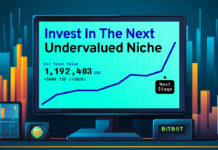Two Boston-based companies have teamed up to fast-track the implementation of secure, remote voting in elections through the blockchain.
After a year exploring the potential of protected voting, Voatz, Inc. and Clear Ballot Group, Inc., have decided to go ahead with the partnership in a bid to tackle the issue of remote voting.
Through an open source blockchain platform, Voatz has designed a secure platform for high volume remote voting designed for smartphones and tablets. Clear Ballot, a voting system company, has provided Voatz with knowledge of the election industry, market requirements and a rich sample election dataset. This gives the Voatz team the ability to understand and build support for the difficulties and scale of actual elections taking place.
Nimit Sawhney, co-founder and CEO of Voatz said, however, that the companies need to realize that several questions must be addressed before remote voting on a large scale is possible.
“These include end-to-end verification, voter anonymity, authentication, security, cost, ease of deployment, scalability, user experience and most importantly – public trust.”
The two companies are hoping that this advance in remote voting through the blockchain will bring convenience and added trust to voters when it matters most all through an app on their smartphones. With a sample ballot on their smartphone a voter will only need to bring their phone with them when the polls open; however, it’s projected that through an app built on the blockchain voters won’t have to make the trip to polls in the future.
Voting on the Blockchain
Using the blockchain to secure voting is not a new thing.
In the past there have been several organizations launching blockchain voting services aimed at tackling the issue of voter confidence in elections.
In October of last year, the Abu Dhabi Securities Exchange (ADX) developed an e-voting platform based on the blockchain technology. Through this service it gave shareholders of listed companies on the exchange the opportunity to vote during annual general meetings.
New York University Tandon School of Engineering also unveiled a blockchain voting system after concerns were raised over whether the 2016 election was pushed in President Donald Trump’s favor.
While at the beginning of 2017 Nasdaq too has emerged with its own e-voting platform using the blockchain technology.
Voting for millions of people around the world is the one time they can democratically vote for who they believe will be the best leader for their country. If, however, they have no confidence in the voting system, what’s stopping them from not voting if they feel the systems are being cheated?
With the blockchain, though, it provides an answer to maintaining the integrity of voter confidence when its needed the most.
Featured image from Shutterstock.
Our Social Networks: Facebook Instagram Pinterest Reddit Telegram Twitter Youtube











